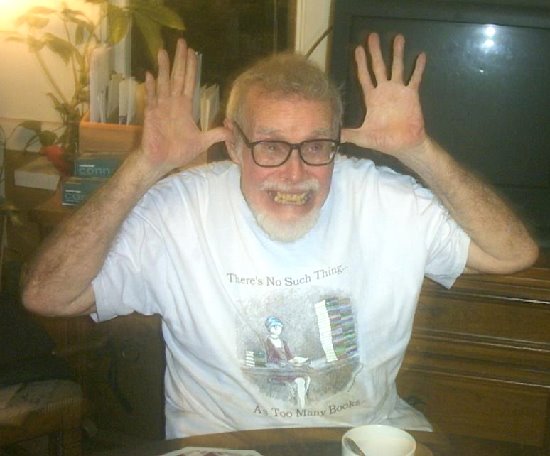
What is this? A competition between artful representations of female and male genitalia? One week after seeing a great local production of "The Vagina Monologues," I am present when a rather large painting of a penis wins a $1000 Best of Show award at an annual student art show.
Sheer size may have done the trick. Then there are the colors. The artist, an attractive young woman, uses lots of red and green and white. The phallus's surfaces contrast with the background, though the piece at sidelong glance seems to be just one hefty square of piled-up pigment. Looking at it straight on, it is impossible to ignore the central cylindrical shape defined by shadow, color, and texture.
The artist has been accepted to more than one graduate school. She obviously has the verve to succeed. This painting is one of her ongoing series on the subject. All of them are large, colorful, painterly, exciting.
In Eve Ensler's "The Vagina Monologues" -- a work made of words -- we have the female genitalia as a "village;" the source of a woman's identity; a piece of furniture; something to be dressed/adorned in a particular fashion; or something that speaks a phrase, like, "Come on in!"
The phallus -- in this work made of paint -- seems not to need a disguise or metaphor (except for the obvious one of being, for the moment, "art." It's simply THERE. Often erect, it has a singular purpose. The vagina is more vague, more open to possibilities, narrative.
I don't even know how to write about this, really. But if one is comparing possible aesthetic uses, it's clear that the vagina is more adaptable and exploitable. It doesn't have to "perform" to be useful. It can be seen as an empty theater, inviting a performance. But it does have a will, and often its will is not respected. More subtle and complex, its will is not as "impressively" expressed as the will of the penis.
And, really, what am I doing SEPARATING body parts from the persons to whom they belong anyway?
I see this young woman's paintings as demystifying the phallus at the same time as going along with its program. I wonder, in ten years or so, what other subjects she will deem worthy of her gooey, exuberantly applied oil paint.







